Conducting a Gender Impact Assessment on Lithium Mining (Large Scale and ASM) in Zimbabwe
Job Description
Background
The global decarbonization agenda to transition from fossil fuels to renewable energy sources has emerged as a critical development issue driven by the need to meet the Paris Agreement Goal. The transition has resulted in soaring demand for the so-called ‘green or transition minerals’, which are critical for meeting the climate goals. Within that context, the Just Transition has emerged as a concept to integrate social and human rights aspects into the transition away from a carbon-dependent economy. The concept of the Just Transition recognizes that social and environmental issues are interlinked. It broadens the focus on a low-carbon economy from a purely technical discussion to one that considers the impact on social justice, place and identity.
To achieve this, the world requires significant lithium – one of the key green minerals required for production of clean technologies – which results in an increased demand for lithium among other green materials. For lithium, the demand is mostly propelled by the increase in demand and production of rechargeable battery products, ceramics and glasses, Zero Emission Vehicles (ZEVs) and other consumer electronics that used lithium-ion (Li-ion) batteries. According to the International Energy Agency (IEA) the global demand for electric vehicles (EVs) rose to 6.6 million in 2021 from 3 million in 2020. In 2030, the global demand for lithium is expected to surpass two million metric tons of lithium carbonate equivalent, more than doubling the demand forecast for 2025. This growing demand for lithium presents huge economic opportunities for producer countries such as Zimbabwe. According to the United States of America’s Geological Survey, Zimbabwe has the largest lithium reserves in Africa, and 6th in the world. The Government of Zimbabwe (GoZ) expects claims the country will meet 20% per cent of the world’s total demand for lithium when it fully exploits its known lithium resources. Over the last 5 years, the country has witnessed significant interest in the lithium sector from both large-scale and small-scale miners. Investments in the sector are expected to translate into economic growth and opportunities for job creation and revenue generation, among other benefits.
While this is the expectation, women and girls do not always get equal opportunities to benefit from the extraction of this critical mineral. Although some research has been done on lithium, gender dynamics and gender experiences related to impacts and benefit sharing for workers and communities in lithium mining activities are largely unexplored. There is therefore a need to assess the gender-related human rights impacts and economic opportunities available to women and girls and to identify the gender gaps that exist in lithium mining projects. Therefore, the Zimbabwe Environmental Law Association (ZELA) intends to engage a consultant (person or organization) to undertake a gender impact assessment of selected lithium mining sites, focusing on two selected large-scale mining operations (i.e. Zulu and Kamativi), one selected small-scale mining area (e.g. near Zulu operations) and surrounding mining communities. The study will address gender dynamics holistically, by paying attention to both women and girls in the workforce as well as gender-related impacts in and around mining sites.
2. Objective of the Study
The primary objective of this study is to conduct a Gender Impact Assessment (GIA) of selected lithium mining sites in Zimbabwe. Focusing on both workforce and communities, the study aims to:
1. Identify and analyse women’s gendered roles and the gendered power relations and dynamics at play in 2 selected large-scale and 1 small-scale lithium mining sites and the surrounding mining communities.
2. Identify and document gender-related human rights impacts in the workforce and communities at the selected large-scale and small-scale lithium mining sites.
3. Assess participation of and benefits for women in large and small scale lithium mining companies (e.g. integrating gendered considerations in Environmental, Social, and Governance (ESG) practices).
4. Provide concrete policy recommendations (targeting government and private sector actors) on how the gendered impacts and gaps that have been identified might be addressed, including by promoting women’s participation and enhancing opportunities and benefits for women in the lithium mining sector in Zimbabwe.
3. Scope of Work
The study will focus on two large-scale lithium projects, as well as at least one small-scale lithium mining operation in Zimbabwe. The study will address gender dynamics holistically, by paying attention to both women in the workforce as well as gender-related impacts in and around the mining sites.
The key areas of investigation include:
3.1. Employment:
• Current Employment Statistics: Collection of data on the number of men and women employed in various roles within selected lithium mining companies/sites.
• Role Distribution: Analysis of the roles men and women occupy, distinguishing between technical, administrative, and leadership positions.
• Leadership Representation: Proportion of women in leadership and decision-making roles.
• Wage Disparity: Comparison of wages between men and women in similar roles.
• Hiring Policies: Review the hiring practices and policies of companies, harassment policies, maternity policies, etc.
• Workplace Environment: Analysis of workplace conditions, including safety, and facilities that support women (e.g., childcare).
• Training and Development: Access to professional development and training opportunities for women.
• Access to Remedy: Worker grievance mechanisms available to women and barriers faced by women in accessing remedy for gender-related grievances.
• Opportunities: For women as agents of change in the mining sector.
3.2. Communities
• Access to Resources: Examine how access to land, water, and other resources is gendered in the mining communities. Investigate whether women face barriers in accessing these resources compared to men.
• Health Impacts: Investigate the health implications of mining operations on women in the community, especially regarding exposure to pollutants and noise, and how these may differ from the impacts on men.
• Social Stability and Conflict: Assess how mining activities have affected social relations within communities, including issues of conflict and displacement.
• Community Representation: Examine the participation of women in community decision-making structures and company processes related to mining operations.
• Household Dynamics: Explore how mining operations impact family structures and dynamics.
• Migration Patterns: Investigate wether mining activities had an effect in migration to and from the communities and region. If yes, who are the persons moving in or emigrating and how this influx impacts or benefit local communities, especially women’s safety and economic opportunities.
• Mining-related Jobs: Income generation opportunities for women in surrounding mining communities (e.g. laundry/cleaning, commerce, food production, sex work).
• Barriers to the Sector: Identification of barriers that prevent women from participating in the sector and accessing the benefits, such as lack of access to finance, training, and supportive networks, care work obligations and household support.
• Cultural and Social Norms: Examination of societal and cultural factors that may influence women's participation in mining activities, community consultation, impact assessment etc.
• Access to Remedy: Mechanisms available for communities to raise grievances if negatively affected and any gender barriers to accessing grievance resolution.
3.3. In small-scale mining:
• Women’s Participation: Examine the extent of women's involvement in small-scale lithium mining operations and their roles, including mining, processing, and supporting services.
• Access to Resources: Investigate whether women have equitable access to resources necessary for lithium mining, such as land, tools, financing, and permits.
• Economic and Non-economic Benefits: Assess the economic and non-economic benefits women derive from small-scale mining activities compared to their male counterparts, including income, opportunities for advancement, etc.
• Working Conditions: Analyse the working conditions for women in small-scale mining, including safety, health risks, and access to protective equipment and training.
• Community Impact: Examine how small-scale mining activities impact and/or benefit local communities, particularly women and vulnerable groups, regarding social dynamics, community health, and environmental concerns.
• Cultural and Regulatory Barriers: Explore cultural beliefs and norms that may affect women's participation and rights in small-scale mining activities.
4. Methodology
The study will employ a mixed-methods approach, including:
1. Desk Review: Analysis of existing literature, reports, and data on gender and lithium mining in Zimbabwe.
2. Field Surveys and Focus Group Discussions: Conducting surveys, focus group discussions and interviews with key stakeholders to gather qualitative insights and establish potential gender gaps, including e.g. women miners and/or women involved in mining-related activities within the community and/or women in the mining community; men/youth within the mining community; company representatives; civil society organisations (e.g. Women in Mining Association); and community leaders.
Duties and Responsibilities
5. Deliverables
The consultant will provide the following deliverables:
1. An Inception Report detailing the study approach and site description, methodology to be used; work plan, tentative timeline and proposed coordination with ZELA (e.g. frequency of meetings, field work to undertake jointly, etc.).
2. Interim Report with preliminary findings for review and feedback.
3. Comprehensive report with findings, analysis, and actionable recommendations.
4. Presentation of the Report during a Workshop/Event to be organised by ZELA. A summary presentation of key findings and recommendations to key stakeholders.
5. A set of IEC materials (e.g. PowerPoint presentation) which will be developed in consultation with ZELA on how to do a GIA and the specific results of this research
Qualifications and Experience
Applicant requirements/Relevant qualifications
At least five years’ experience in gender studies, gender and mining, environmental social governance and environmental protection, feminist approaches. Applications will be considered from applicants with a minimum of a Master's degree in any one or more of the following areas: law, ESG, gender, , environmental planning and policy, public policy, or any other relevant field. The ability to research, write, review, and produce high-quality work using gender and feminist approaches, competency in clear, concise documentation in plain English.
How to Apply
Persons or teams with demonstrable experience in conducting similar work are encouraged to submit: An Expression of Interest (EOI) which is not more than 4 pages.
The EOI must detail the applicant’s understanding of the TORs, and costs; a summary of the applicant’s skills and experience relevant to conducting this kind of assignment; the applicant’s Curriculum Vitae, with names of three referees and their contact details (email and phone) and samples of previous work done related to this assignment. Applications that do not contain all the above documents will be regarded as incomplete and will not be considered. Applications must be addressed to [email protected] by 14 April 2025. The title of the consultancy should be clearly stated in the email subject, and only shortlisted candidates will be contacted
Similar Listings
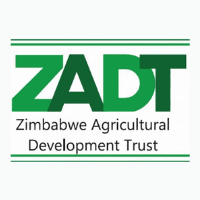
Terms of Reference for a Consultant to Assess the impact of the ZADT Revolving Fund on Funded Women and Youth under the CAUSEWAY Project.
Zimbabwe Agricultural Development Trust — Harare
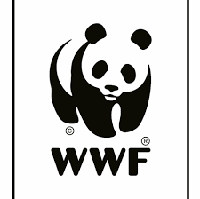
Consultancy for the development of World Wide Fund for Nature (WWF) Zimbabwe’s 5-year Strategic Plan (2026-2030)
WWF Zimbabwe — Harare
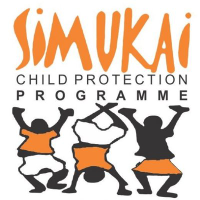
CALL FOR EXPRESSION OF INTEREST FOR CONSULTANCY SERVICES FOR THE DESIGN AND IMPLEMENTATION OF A CAPACITY DEVELOPMENT PROGRAM FOR SIMUKAI CHILD PROTECTION PROGRAMME
Simukai Child Protection Program — Harare
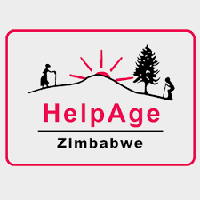
Terms of Reference for Policy Position Paper Development Midlands Inclusive Eye Health Project
HelpAge Zimbabwe — Harare

Terms Of Reference
Oxfam — Harare
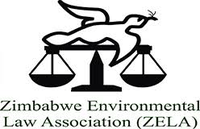
Location: Harare
Company: Zimbabwe Environmental Law Association (ZELA)
Expiry Date: 2025-04-14 00:00:00
